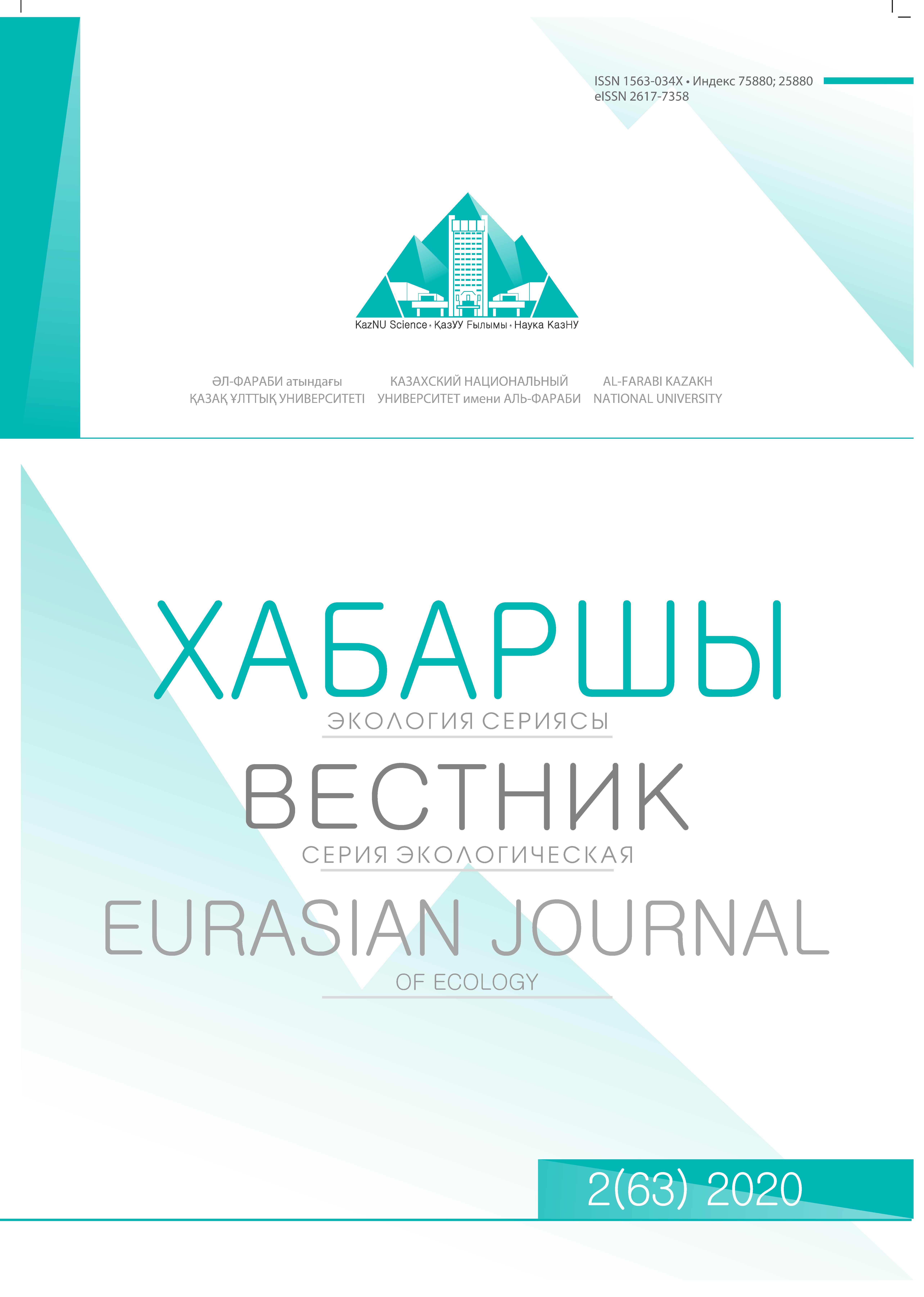Influence of anthropogenic impact on changes in humus content in arable soils
DOI:
https://doi.org/10.26577/EJE.2020.v63.i2.04Abstract
In the study area, the development of agriculture, which occupies the main position in providing the population with food, is the main task and is fully based on the use of soil resources. Ignoring the scientific-based system of agriculture and agroecological potential with intensive use of soils in the agricultural zone has led to a decrease in its fertility. Therefore, the correct organization of land use based on measures developed based on the results of scientific research and taking into account the local characteristics of the soil cover is an urgent problem of our time. The purpose of the work is to generalize and analyze the results of studies on changes in the humus content in soils of long-term experiments under the influence of agricultural use. The article considers the quantitative and qualitative composition of humus in the soils of the agricultural zone of Kyrgyzstan and their changes in the process of agricultural use. Based on the analysis, recommendations are made for ameliorative nature and ways to preserve and increase the content of humus in the studied soils are indicated. Key words: soil, humus, fertility, agriculture, dehumification, biomass, virgin soil.













